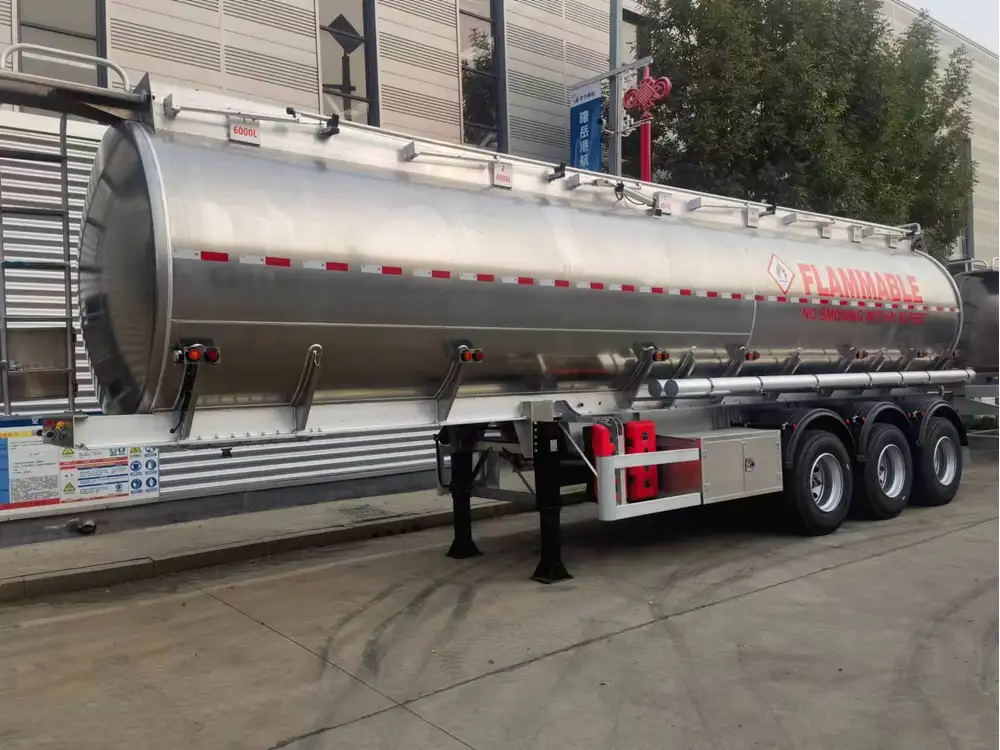Belly dump trailers are vital for transporting bulk materials efficiently. But what happens when their gates fail to close all the way? It’s a conundrum that many operators face, and the reasons can be multifaceted. Let’s dissect this issue systematically, providing comprehensive insights to ensure your operations remain seamless.
Understanding Belly Dump Trailers
What is a Belly Dump Trailer?
A belly dump trailer is an essential piece of equipment employed in various industries such as construction, agriculture, and logistics. Characterized by its two hoppers and the ability to unload materials from the bottom, it allows for efficient and controlled dumping of aggregates, gravel, and more. The unique design offers advantages in weight distribution and stability.

The Importance of Gate Functionality
The gate mechanism is the heart of the belly dump trailer. It controls the outflow of materials, impacting not just efficiency, but also safety. If the gate doesn’t close all the way, it can lead to spillage during transport, potential hazards on the road, and costly delays in operations.
Common Reasons Why Belly Dump Trailer Gates Don’t Fully Close
1. Obstructions in the Gate Mechanism
It’s essential to ensure that no debris or residual materials are lodged in the gate mechanism. Small stones, dust, or leftover cargo may hinder the gate’s movement.
Checklist:
- Inspect for any visible obstructions.
- Clear out any materials before operation.
- Regularly clean the gate area for debris buildup.

2. Hydraulic System Malfunctions
A belly dump trailer typically utilizes a hydraulic system to open and close the gates. If there’s a hydraulic leak, blockage, or if the fluid level is low, the gate may not function properly.
Common Indicators:
- Slow or delayed gate movement.
- Unusual noises during gate operation.
Maintenance Tasks:
- Regularly check hydraulic fluid levels.
- Inspect for signs of leaks in hydraulic hoses and connections.
- Schedule routine servicing of hydraulic components.
3. Structural Issues with the Gate
Over time, physical wear and tear can affect the gate’s structure. This could include bending, warping, or damage due to heavy loads or accidents.
Examination Points:
- Look for any misalignment of the gate.
- Check for corrosion or rusting of components.
- Assess hinges and locking mechanisms for wear.
4. Improper Calibration of Sensors
Many modern belly dump trailers come equipped with sensors that help automate the opening and closing of the gates. Faulty or improperly calibrated sensors can lead to incomplete closures.
Troubleshooting Steps:
- Check the sensor connections for corrosion or damage.
- Recalibrate the sensors according to the user manual.
- Test the sensors’ response during operation.

5. Operator Error
Sometimes, the simplest explanation is the most common one. Operators may not fully engage the closing mechanism due to lack of experience or misunderstanding of the trailer’s controls.
Recommendations for Operators:
- Provide detailed training sessions on gate operations.
- Encourage operators to perform dry runs to familiarize themselves with the equipment.
- Implement a checklist for closing procedures.
Preventative Measures for Ensuring Gate Closure
Routine Inspection and Maintenance
Establish a robust maintenance schedule, focusing on the following elements:
- Daily Checks: Look for signs of damage, obstructions, or leaks.
- Monthly Inspections: Review the hydraulic system, gate alignment, and sensor functionality.
- Annual Overhaul: Conduct a comprehensive review of all mechanical and structural components.

Training and Best Practices
Empower your operators with knowledge:
- Provide them with manuals and user guides for proper handling.
- Promote a culture of safety that encourages reporting issues.
- Keep them informed about the latest trailer maintenance techniques and technologies.
Monitoring and Response: Act Fast to Mitigate Issues
Implementing a Monitoring System
Consider implementing a real-time monitoring system that tracks the operating conditions of your belly dump trailers. This could include:
- GPS tracking for route optimization.
- Sensors that alert operators to abnormalities in gate functionality.

Quick Response to Issues
Timely action can prevent minor issues from escalating into significant problems. Develop a rapid response plan:
- Have a designated maintenance team on standby for immediate repairs.
- Create a communication protocol for reporting and resolving gate issues.
Emergency Procedures
In case of gate failure while on the road:
- Safely pull off the roadway and secure the trailer.
- Contain any spillage promptly to minimize risks.
- Report the incident and follow company procedures for assessment and repair.
Advantages of Proactive Solutions

Enhancing Operational Efficiency
By addressing gate issues before they escalate, companies can:
- Reduce downtime associated with repairs.
- Ensure timely delivery of materials, enhancing client satisfaction.
- Maintain safety standards on the road, protecting drivers and fellow motorists.
Cost-Effectiveness
Investing in preventative measures ultimately saves money:
- Fewer repairs due to regular maintenance.
- Lower insurance premiums by minimizing incidents on the road.
- Increased lifespan of the belly dump trailer through consistent care.
Conclusion: Ensuring Gate Closure for Optimal Performance
In summary, troubleshooting your belly dump trailer gate closure issues requires a multi-faceted approach. By understanding the common challenges, conducting regular inspections, empowering your operators, and swiftly responding to potential failures, you can significantly enhance the functionality of your trailers.
To maintain effective operations and ensure safety, a proactive mindset is crucial. Remember, a fully functioning gate translates directly to smoother operations, increased efficiency, and peace of mind for operators and clients alike.
This extensive guide serves not just as a potential solution to your immediate issues but as a commitment to operational excellence in your belly dump trailer performance. Whether you’re troubleshooting a current problem or striving to prevent future mishaps, knowledge is your best tool!



